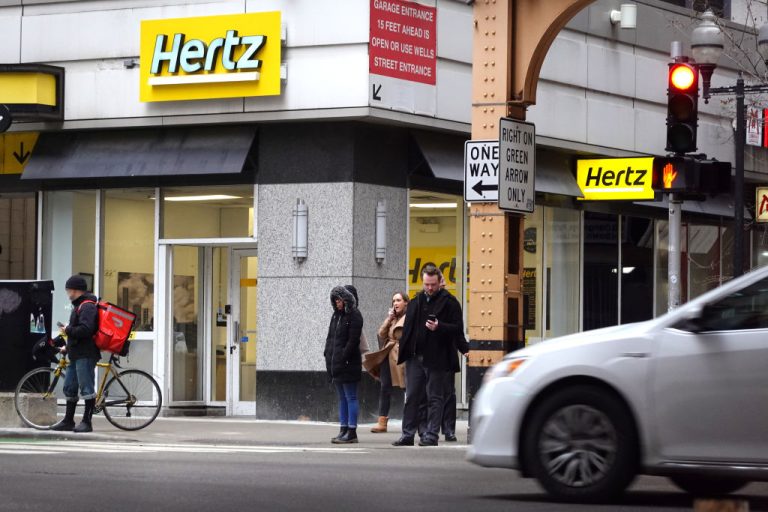On Jan. 11, vehicle rental company Hertz Global Holdings, said it intends to sell approximately 20,000 electric vehicles from its U.S. fleet, citing higher operational costs related to collision and damage as well as costs associated with depreciation, and instead will invest in traditional gas powered vehicles.
Previously, Hertz said it would order upwards of 100,000 Teslas by the end of 2022, and up to 65,000 units, over five years, from Polestar.
The company had previously set a target for 25 percent of its fleet to be electric by the end of this year.
However, in a recent regulatory filing, Hertz said, “Expenses related to collision and damage, primarily associated with EVs, remained high in the quarter,” and that the company expects to incur $245 million in incremental depreciation expenses in the fourth quarter of 2023.
“Collision and damage repairs on an EV can often run about twice that associated with a comparable combustion engine vehicle,” Stephen Scherr, Hertz CEO, said in a recent analyst call, according to CNN.
Success
You are now signed up for our newsletter
Success
Check your email to complete sign up
“The MSRP declines in EVs over the course of 2023, driven primarily by Tesla, have driven the fair market value of our EVs lower as compared to last year, such that a salvage creates a larger loss and, therefore, greater burden,” Scherr added.
Currently, Hertz’s used car website has more than 600 electric vehicles up for sale, including BMW’s i3, Chevrolet’s Bolt and Tesla’s Model 3 and Model Y SUVs.
READ MORE:
- Tesla, Other EVs Lose Tax Credits as US Hopes to Reduce Dependency on Chinese Batteries
- FAA Grounds 171 Boeing MAX 9 Aircraft Following Serious Mid-Flight Incident
- Artistic Freedom Under Siege: New Report Exposes the CCP’s Widespread Censorship and Oppression of Falun Gong, Shen Yun
Tesla mostly to blame
While Hertz did not name Elon Musk’s Tesla directly, it appears the popular EVs are largely to blame for Hertz’s poor performance.
Currently around 11 percent of Hertz’s total rental fleet are electric vehicles, and Tesla’s make up about 80 percent of those.
As Tesla aggressively slashes its vehicle prices, other automakers follow suit, resulting in lower pricing for all electric vehicles, and contributing significantly to the $245 million lost in depreciation.
Compounding the issue, since Tesla is a relatively new company, replacement parts can sometimes be difficult to come by, and finding technicians with the skills to service the vehicles can be difficult as well, driving up the costs to get repairs done.
Tesla is not like General Motors, and other vehicle manufacturers, who have been around for generations, that has resulted in the establishment of a broad national parts supply network.
Scherr said, “There’s an aftermarket of parts that is there, that is less mature, obviously, in the context of Tesla.”
In addition, Scherr also said that EVs tend to be in more accidents than traditional vehicles.
“Our work with Tesla is to look at the performance of the car, so as to lower the risk of incidence of damage … and we’re in very direct engagement with them on parts procurement and labor and the like,” Scherr said.







